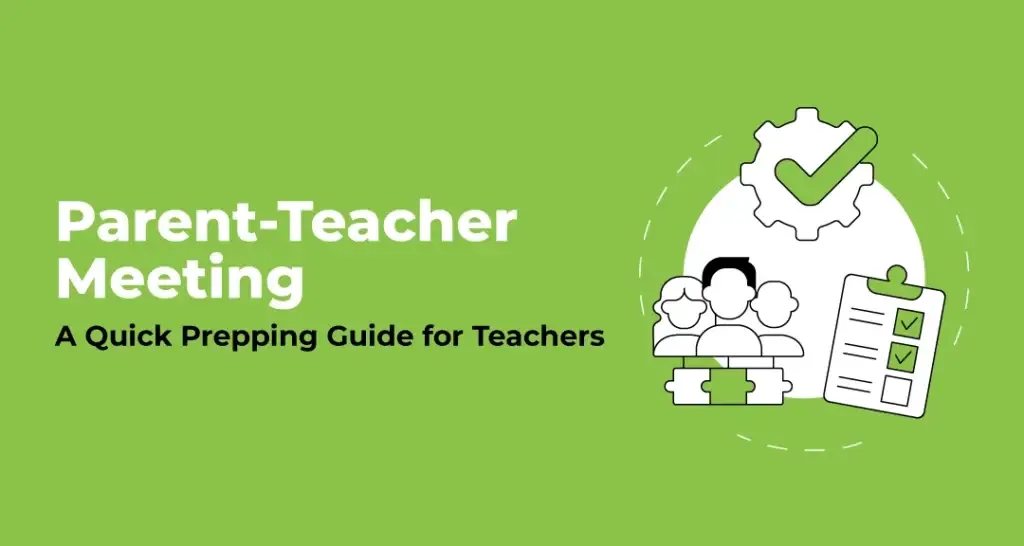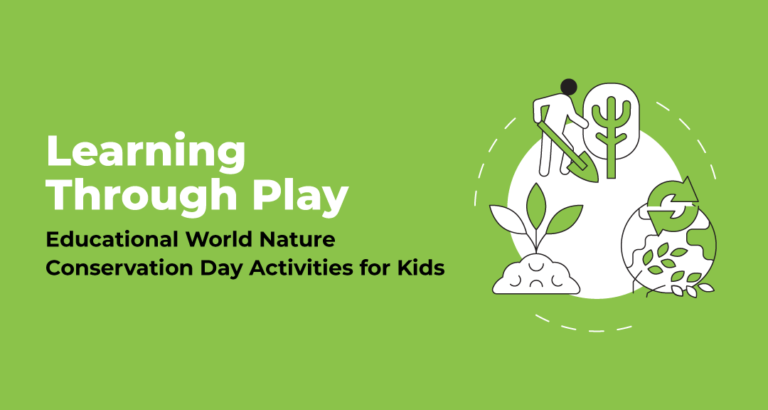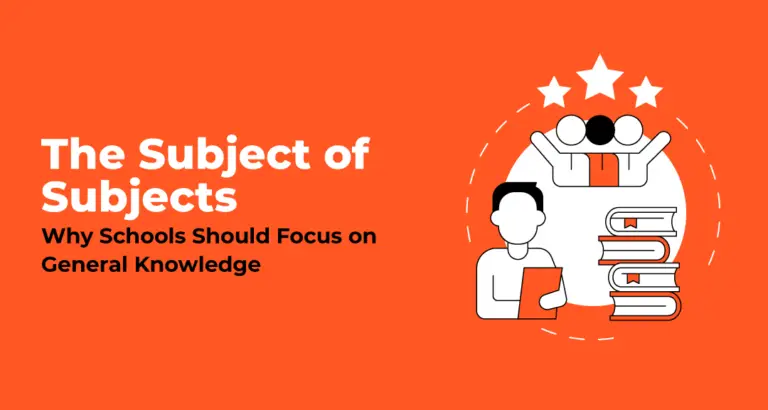Parent-Teacher Meeting: A Quick Prepping Guide for Teachers
- Teaching
- July 12, 2024
- Viva VOLT

It takes a village to raise a child. The heart and soul of a village belong to teachers and parents who collaborate as the two major pillars of support to ensure a child’s purposeful upbringing and to chart out his or her educational journey with unwavering dedication.
At home, parents form an unshakeable foundation that stands tall on moral education and a growth-oriented mindset, while teachers play a pivotal role in fostering intellectual curiosity and harmonizing academic growth with personal development in a learning-driven environment.
A harmonious symphony between parents and teachers is a must-have in shaping a child’s bright future during the formative years. A parent-teacher meeting (PTM) is a vital link connecting home, school, and the child.
Such interactions go a long way in bridging the gap between parents and teachers; and opening up doors for open discussions on a child’s day-to-day progress, as well as the educational issues that need attention beyond the classroom.
Ensuring a Student’s Success: Why PTMs Matter
The parent-teacher conversations not only help in improving academic achievements but also assist in developing a child’s social, emotional and even behavioral aspects as a cohesive support system.
Additionally, when parents and teachers engage in candid conversations, they can zero out any chance of misalignment in their approach to a child’s academic excellence and personality development goals.
Parent-teacher conferences provide a valuable platform to:
- Summarize the student’s academic achievements and behavioural difficulties noticed by the teacher during and after classroom lessons.
- Highlight overall class performance assessments in the form of scores on tests and quizzes, assigned projects and other forms of group and individual work.
- Foreground the urgency for additional instruction based on the information passed on by a student’s family regarding his or her learning style, strength, difficulty, and behavior. It helps improve transparency and accountability between both parties.
- Identify specific acquisition plans for consultation or enhancement of the learning process for the student.
- Eradicate any challenges in personal, social or learning arenas that may undermine a student’s potential to attain his or her educational goals.
Thus, the transformative impact of parent-teacher meetings on a student’s overall learning and academic success must be addressed. However, making such interactions productive and successful (instead of traditional ‘sit-and-get’ conferences) is a huge responsibility that teachers have to shoulder with utmost commitment. Some of the major stumbling blocks, which teachers have to usually grapple with during parent-teacher conferences, include:
- Meeting parents with conflicting expectations and communication barriers.
- Dealing with emotional or confrontational parents constructively.
- Averting serious discussions on social and academic issues.
With almost no idea as to what types of parents are likely to walk through the door the next moment, teachers have to navigate every conversation politely within 15 minutes without upsetting them. But let’s admit that navigating such parent meetings calls for a lot of perseverance and resilience. If you’re a teacher looking forward to PTM, fear not! Here’s your roadmap to touch base with a child’s parents impeccably and with a dash of perfection.
Pillars of Successful Parent-Teacher Meeting: Essential Prepping Strategies for Teachers
The right preparation is key to reaping the maximum value out of a conversation with each parent. As a teacher, it is your responsibility to convert the meeting into a healthy discussion by quickly following the following roadmap.
>> Before a Parent-Teacher Meeting
- Review the necessary information about the students beforehand by digging deep into their essential records, such as grades, test scores and behavioural notes. Leverage this data as a springboard for discussion, highlighting where the students excel and where they need attention.
- Be always ready with the students’ most notable achievements and major roadblocks to their academic performance with specific stories (if any) to make the conversation more engaging.
- Set the objectives of PTM sensibly and gain clarity on the outcomes you (as a teacher) wish to get from the conversation.
- Curate the most relevant materials like artworks and key assignments, reflecting students’ overall academic performance and creativity in the classroom.
>> Executing a Productive Parent-Teacher Meeting
- Always welcome parents with a warm tone and create a nice atmosphere for them. Start the parent-teacher conference with an affable smile and greet the parents using their names to add personalization. This will foster an engaging environment for open communication.
- If you are meeting a parent for the first time, you must introduce yourself properly and try to establish a comfortable environment in a collaborative tone for the discussion.
- Given that PTMs are time-restricted engagements, convey the meeting agenda as early as possible, and start structuring your conversation around it. Make sure that the conversation is around academic progress, behavioural observations and strategies for future improvements.
- Always begin your discussion on an affirmative note and talk positively about the student’s strengths, academic progress and behaviour. Try to balance the critical and sensitive concerns after putting forward the positives.
- Be a good listener and ensure there is a ‘two-way communication’ followed by active listening. Respond to the parent’s concerns and emotions positively with a head nod that assures them that you’re listening to them. If possible involve words like ‘I see’ or, ‘That’s a good point’ to make the parents feel more involved.
- Refrain from engaging in conversation on any culturally sensitive topics and use inclusive language to create a supportive atmosphere.
- Always encourage parents to come up with their feedback and share their concerns during PTM. Don’t hesitate to ask for their observations and suggestions to elevate their child’s learning.
>> After a Parent-Teacher Meeting
End every session on a positive note, stating the direct strategies and plans to assist the child in improving his or her overall performance. It implies that you should have an implementation strategy chalked out earlier to sync with the insights of the meeting. Ensure the final conversation should address both short-term and long-term approaches to be adopted to help the student evolve with all his potential.
It is a good practice to document the key points of discussion and the course of action that the two parties agree upon. Prior to reaching any conclusion, encourage parents to pose questions with regard to the issues that have been discussed in the meeting so as to ensure that parents are well-informed, and are fully content with any decisions that could have been made.
The Wrap
PTMs are a good platform for raising concerns and expressing feedback regarding the status of a child’s academic performance growth and improvement. They lend a much-needed impetus to the partnership between home and school for building a solid foundation to boost the performance of learners. Keeping in view that such engagements are crucial for the future of learners, it is important to plan them properly.
Also, it is essential to be polite and professional at all times, no matter what the people encounter. Make sure that you do not forget that clear, open and respectable communication is your strongest weapon to make the parent-teacher meeting most productive. Remember that you and the parents are with the student on the same side – the students’ side and your aim is primarily to make a positive difference in the student’s life on multiple fronts, including educational processes and personal interests.
Turn your meetings into opportunities to create meaningful impact as you step into your next PTM.
Good luck!!



